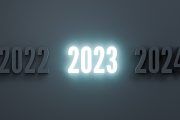Force majeure or “Act of God” clauses were often forgotten until the COVID-19 pandemic dusted them off and made them relevant again. These clauses are well worth another look.
What is Force Majeure?
“Force majeure” is the term used to describe an exceptional event or circumstance that is unforeseeable, beyond the control of the parties, and that could not reasonably be avoided. Most contracts provide that one receives an extension of time, but not additional money, in the event of force majeure.
Force Majeure Under Ohio Case Law
In Ohio, to use a force majeure clause as an excuse for nonperformance, the nonperforming party “bears the burden of providing that the event was beyond their control and without its fault or negligence.” Stand Energy Corp. v. Cinergy Services, Inc., (2001), 760 N.E.2d 453.
Delay and Force Majeure Events: Making the Claim
The first thing a contractor or subcontractor should do upon experiencing a delay is to provide notice according to the contract- and then be expected to prove that it was not only unforeseeable, but wholly unrelated to anything a person could influence.
How are Force Majeure Events Handled in AIA Standard Construction Contracts?
The AIA A201 (2017) General Conditions does not utilize the term force majeure. However, it addresses the concept in Article 8, Time, and specifically section 8.3, titled “Delays and Extensions of Time.” Section 8.3.1 states:
8.3.1 If the Contractor is delayed at any time in the commencement or progress of the Work by (1) an act or neglect of the Owner or Architect, of an employee or of either, or of a Separate Contractor; (2) by changes ordered in the Work; (3) by labor disputes, fire, unusual delay in deliveries, unavoidable casualties, adverse weather conditions documented in accordance with Section 15.1.6.2, or other causes beyond the Contractor’s control; (4) by delay authorized by the Owner pending mediation and binding dispute resolution; or (5) by other causes that the Contractor asserts, and the Architect determines, justify delay, then the Contract Time shall be extended for such reasonable time as the Architect may determine.
In the AIA A201 (2017) Section 15.1.6.2, there is a definition of weather delay:
15.1.6.2 If adverse weather conditions are the basis for a Claim for additional time, such Claim shall be documented by data substantiating that weather conditions are abnormal for the period of time, could not have been reasonably anticipated, and had an adverse effect on the scheduled construction.
What about COVID-19 Now?
Most believe that the COVID-19 pandemic qualified as a force majeure event at the beginning of the pandemic in 2020, when it was unanticipated and unforeseeable. But now that the pandemic is known, but perhaps its future twists are not, there is some uncertainty whether COVID-19 impacts would qualify as a force majeure event under many contracts. Such a defense will be less likely to prevail now than two years ago.
All construction stakeholders are advised to carefully consider the impact of force majeure contract clauses in today’s changing world.


